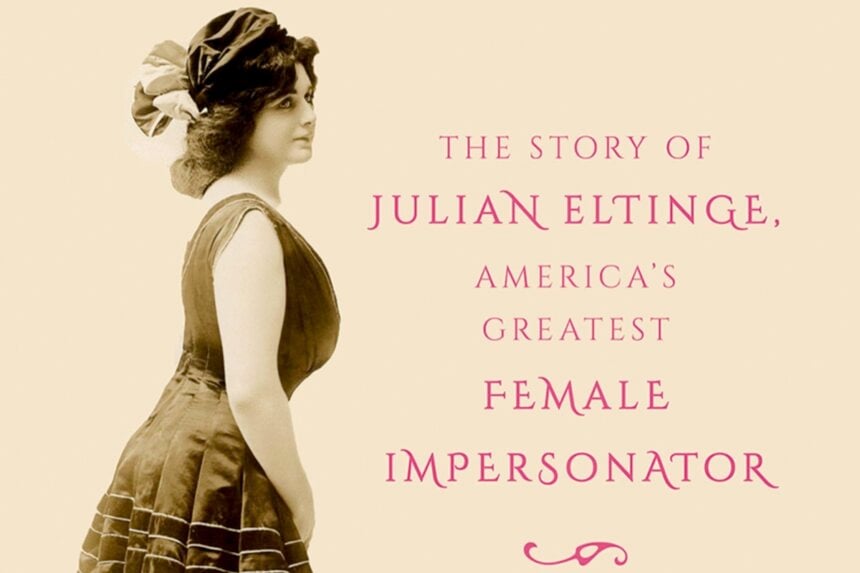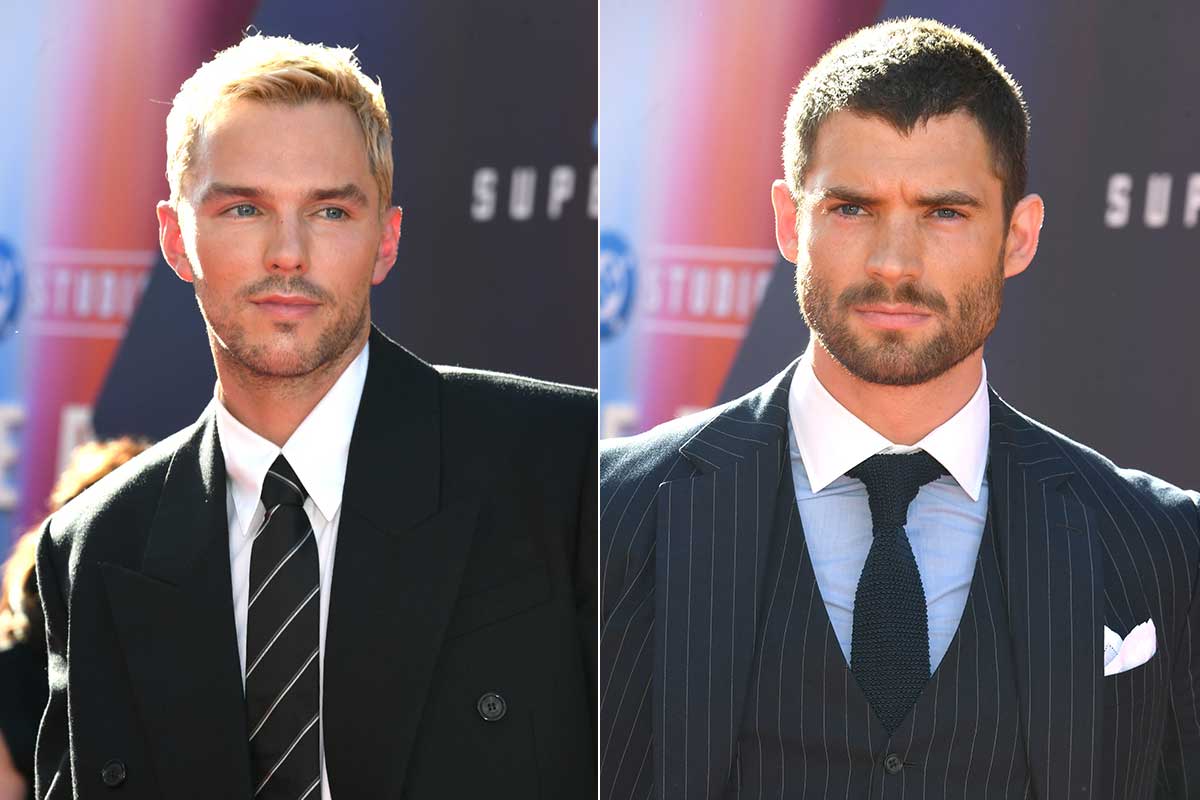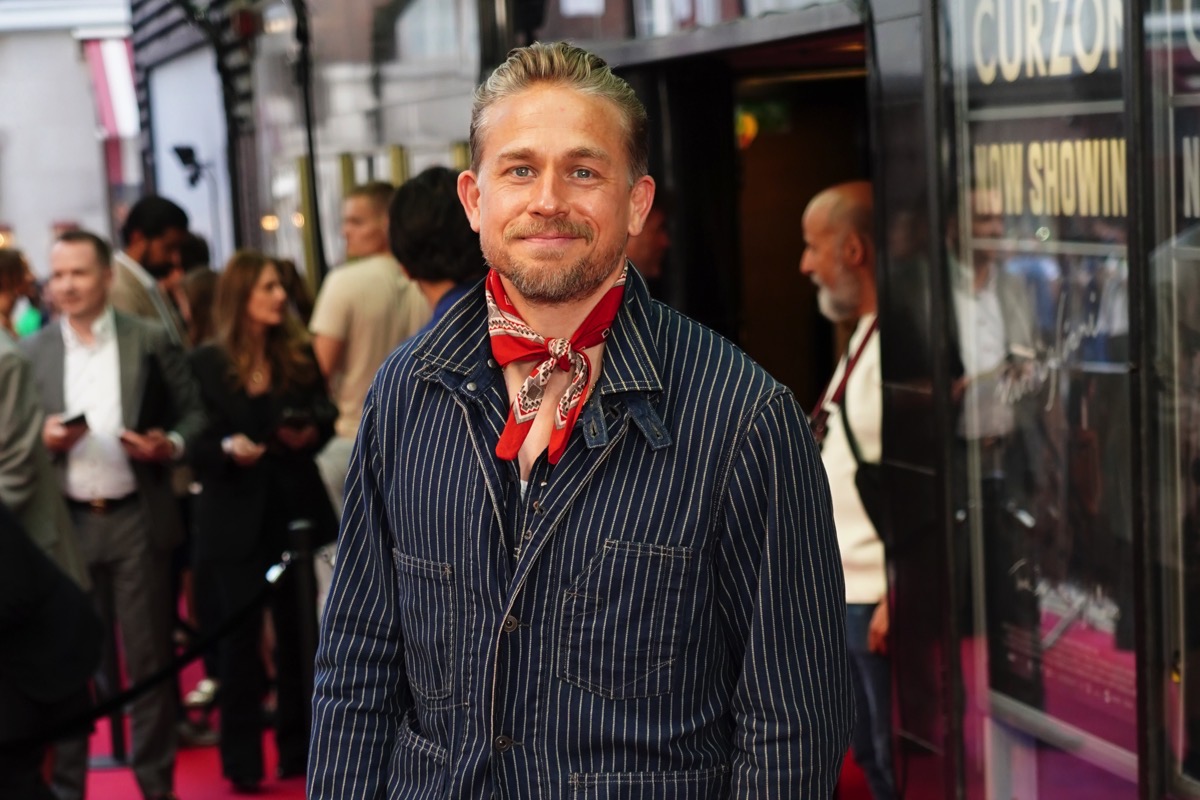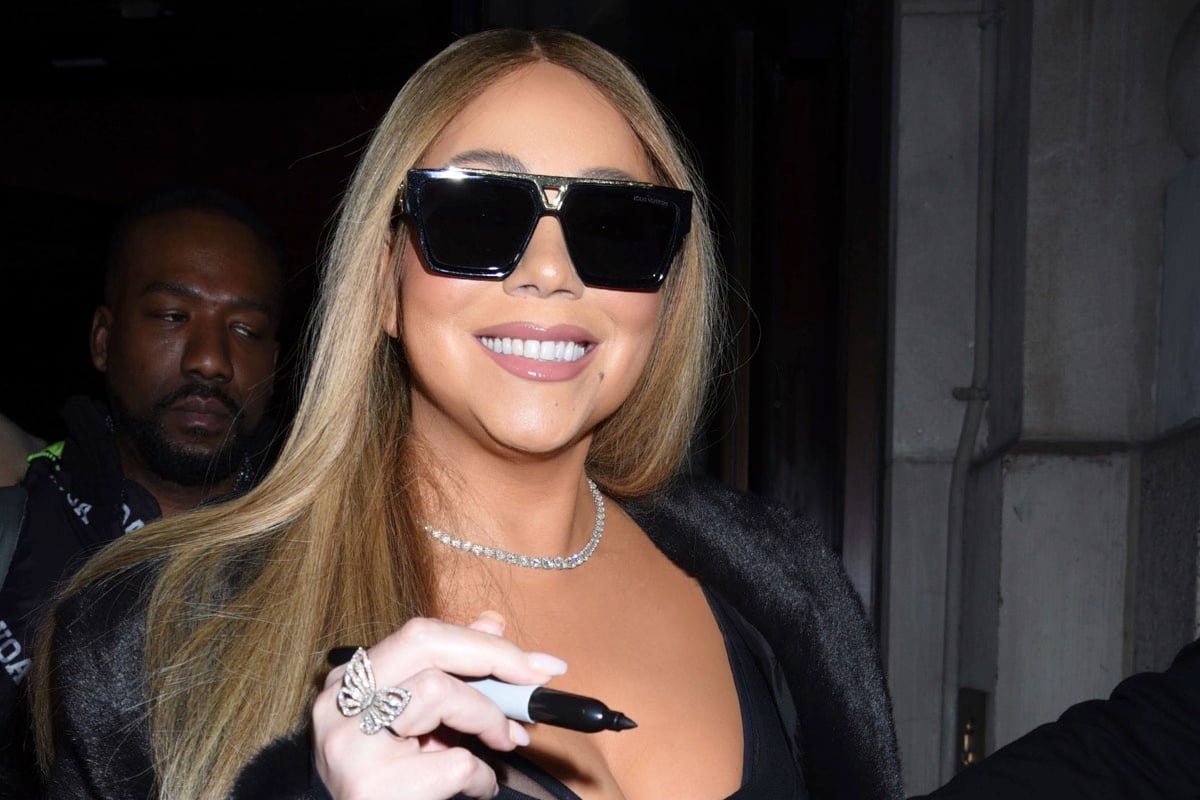Former RuPaul’s Drag Race contestants have joined forces to create the Drag PAC, an organization that educates and encourages the LGTBQ community to go out to the polls and vote for their rights this November. Despite the controversy around drag, psychotherapist and author Andrew L. Erdman notes that prior to the 1920s, this art form flourished as a vaudeville routine enjoyed by many diverse audiences.
Andrew’s new book, Beautiful: The Story of Julian Eltinge, America’s Greatest Female Impersonator (published by Oxford University Press), explores the turn of the 20th century, when female impersonation was a mainstream activity and focuses on the career of Julian Eltige, a performer who delighted audiences on the vaudeville and theater stage with his seamless illusions. In the era when Julian was enjoying his peak popularity, men in colleges, businesses, and even the military formed drag clubs and put on musicals with little fear of judgment. In other words, men in power and influence admired this art form. In many ways, Julian walked so today’s queens could run.
In addition to Beautiful, Andrew is also the author of Queen of Vaudeville: The Story of Eva Tanguay, which tells the story of a vaudeville and musical comedy star who defied censors and could be considered the early 1900s version of Madonna. Andrew has also written comedy for the stage, TV, and online platforms. With a doctorate in theatre studies from the City University of New York and a master’s in social work from Yeshiva University, Erdman’s books connect the sweep of entertainment history to our inner lives. In his work, Andrew seeks to uncover misunderstood aspects of our cultural past and how they relate to misunderstood parts of ourselves.
We chatted with Andrew about the new book, the fine line between female impersonation and drag and much more in this insightful interview.

You have a very interesting background between theater studies and psychotherapy. How did those merge? How did that come about?
Good question. I think that they both come from places in me. I’ve always loved theater and performing and popular culture. My brother and I used to do little sketches and record them and stuff. And my mother was a psychotherapist and I’ve always had like an interest in philosophy and how people think and what makes them tick. And it’s not like I was trying to sort of put the two together, but sort of here I am. So, when I write stuff, I like the bigger historical picture, but I’m also trying to think about what’s going on in people’s heads at a personal level.
How did you get interested in vaudeville and the early days of theater?
So, part of it is I just wonder if I was born slightly at the wrong time, and there’s a part of me that’s just fascinated with early New York, but I do remember my mother’s father, who was the only one of my four grandparents who was born in the US, he grew up in the Lower East Side, and then he lived in Brooklyn, and when I was a little kid, he would take us to Coney Island, and he would tell us stories about like going to the movie theater and paying a nickel and you get like two hours’ worth of movies and cartoons. And, you know, I don’t know, like, it was just an early source of fascination with me. And then, like, as an adult reading books, like Low Life by Luke Sant and a lot of Herbert Asbury stories. It just kind of grabbed me. And I think also, and I’ve mentioned this a bunch of times, but I grew up watching The Carol Burnett Show and sort of that era, which is kind of like vaudeville on TV, you know, it’s variety TV. So, there is some deep like line that connects me to all of that.
How did you become interested in Julian Eltinge’s story?
When I was researching the book on Eva Tanguay, I came across him. When I was doing dissertation research back when I was in graduate school, the 1st time I came across this, you know, Eva Tanguay was not a big fan of marriage and she’d been in some disastrous marriages. She didn’t really have much use for men other than as like bed partners, but she had been involved in this kind of elaborate, really funny hoax to become engaged to Julian Eltinge, and he was going to wear the bridal gown and she was going to wear the tuxedo.
There was all this gender bending stuff, and it was pretty hilarious, and it got a lot of public attention. It was 1908 when vaudeville was at its frenzied peak and they were both doing Salome acts. Salome was a really popular vaudeville act. And I was like, this is an interesting guy and he was as famous as she was and then just thinking about all the gender issues going on these days, it just sort of all came together. I was like, I wonder if anyone’s written about him and I foolishly decided I’ll do it.
What is your research process like? How do you get all this information?
It is a lot before the internet, although so much has been digitized you know, comparing it to, say, when I did the book about Eva, I had to go to a lot of research archives. And for this one, I went to fewer because a lot has been digitized, but tons of old newspaper clippings from tiny newspapers I would never have had access to are online.
It was thousands of hours of searching. There also are some vaudeville archives of managers’ reports – people who saw these acts and then typed up their reports for the head office, those are available. I had to go to Iowa last time to see them, but now they’re available online.
And then also kind of balancing that with reading some of the scholarship, some of the things that have been written about the era. So, I kind of have to balance both that, like to, to know kind of what’s been written and get the bigger picture, but also that very nitty gritty, just going through all the little details. And I did go to some archives, as I say, I went to the North Port Archive and but just, you know, a lot of poking around and sifting.
And in your research, what is the most interesting thing you discovered about Julian or vaudeville in that time?
Hmm, I discovered many things, but I would say I think in some ways I think like the early stirrings of a sense that we can take entertainment and make it like any other industry. I think a lot of people don’t realize this about the early people who formed the entertainment industry, they weren’t generally speaking artists or directors or writers, they were businesspeople, mostly businessmen and like entrepreneurs and impresarios and even A.H. Woods, who was a Broadway producer and who was Julian Eltinge’s kind of father figure and creative mentor, knew like we’ve got a package and brand you just any kind of celebrity today. And Julian was very good at it too, so there’s all that entrepreneurship, that kind of Horatio Alger entrepreneurship going on in the era.
Julian was so revered as a female impersonator but he’d always strove to be an actor in film. Do you think that the female impersonation really stymied his career as far as wanting to be in the film industry?
Yeah, I mean, definitely in the way that certain roles pigeonhole or certain actors or performers, they’re always going to carry that around. But he was so good at what he did. I mean, he was like the best – and also female impersonation of all kinds was hugely popular in the era. He was a really talented actor, singer, dancer, but he was almost too good at it. It’s kind of like a tragic under theme of his life.

Now, you had made a delineation in the book about female impersonation versus drag, saying that drag was more camp but you’re seeing movies like The Danish Girl with Eddie Redmayne where he played a female character. Do you think female impersonation is still a thing that could be viable and accepted now?
Yeah. It’s really interesting in that female impersonation is almost more like conservative in a way. That’s one of the reasons why Julian Eltinge was popular the way that he was. But I do think with gender impressionism particularly there are internet stars and also media stars who much more do the Julian Eltinge thing where they’re looking very beautiful, sensual, maybe they’re kind of a little biased, you know, I don’t know. Both sexes, you know, but it’s much more a Julian vibe, I think. So, I do think it’s totally viable.
It seems like there’s a pattern you can see with Julian’s story where female impersonation was accepted and revered and it almost is when like the Hays code came in with the film industry where the popularity of that art form waned. And now we’re going through that same thing, like post-Stonewall and in the seventies, drag was becoming more accepted and now it’s under fire. Do you think the tide will turn again and drag and such will become more accepted again?
I do. I’ve reflected on this, how it’s both troubling but also familiar. It’s also comforting in a way that like we’ve been here before where there’s a clamp down on all this openness and sexuality and sex like there was in the 1920s, kind of like the 1990s.
What I think is different now is that it really had all things queer, you know, have sort of pushed much more to the mainstream. Which is why I think there’s so much panic and hysteria and reaction to it. It’s like, this genie is not going to go back in the bottle, you know? So, what the near-term future looks like, I don’t know. But our whole understanding, I think, of gender is really massively shifting.
Do you think there’s any performers now that have that Julian vibe that you see out in the world right now that have that potential to become more mainstream?
I would say again, there are influencers and internet personalities on like Pinterest, TikTok and social media who do these very beautiful impressions and they’re very sensual, you know, and I think these are most, mostly cisgender men who, who have a very, you know, they’ve curated a very sensual look, very beautiful look, girlish in a way.
Do you think that drag can really make an impact on the political landscape, especially now with everything that’s going on?
Yeah, I mean, I looked at the Drag Super PAC website, and I’m not a huge expert on them, but I think that they’re trying to just get people to vote, to think in a more kind of loving and accepting way. I don’t know, in terms of their more performative, public face. You know, I can’t speak to that so much, but I think that they’re just trying to get people educated and bring them into the political process and maybe more open-minded young people. So, to that extent, it’s kind of like civics, you know, and I think it’s a good thing.
Do you think there will ever be another person like Julian in the entertainment industry?
That is a good question. You know, things are so, you know, illusion has such a different feeling these days because anything can be done with special effects, technology, AI, you know, the idea of someone coming on stage and really fooling people, which was popular since at least the time of like P.T. Barnum, like American audiences were really into that. I don’t know that there will be something of that same wow factor. I don’t know. I’m, I’m, I’m willing to be surprised. It, it’s interesting to see what the, what is, what makes people get excited and what excites their senses. I don’t know. There’s so much, you know, out there today.
What’s next for you? What subject are you hoping to tackle next?
I’m just starting to do some poking around a little bit. I have a few different areas of interest. I was considering maybe doing a kind of cultural deep dive on the casting couch, although a lot has been done on that, it’s also very timely. I’m also interested in you know, Eva Tanguay was said to there’s been a long kind of myth that her ghost inhabits the music hall up in Coho’s, New York, in upstate New York.
There’s something about these kinds of fables and myths around actors and performers. I don’t know, sort of what lives on in our consciousness about people who have been forgotten and people have been remembered, which is always of interest to me. Like, why are some people so famous and forgotten and other people almost arbitrarily remembered? So maybe something like that cultural memory of celebrity. It’s just I’m in the very early stages as you can probably tell.
Beautiful: The Story of Julian Eltinge, America’s Greatest Female Impersonator and Queen of Vaudeville: The Story of Eva Tanguay are available on Amazon or wherever you buy your books. Keep up with Andrew on his website.







![Apple Watch Series 10 [GPS 42mm case] Smartwatch with Jet Black Aluminium Case with Black Sport Band - S/M. Fitness Tracker, ECG App, Always-On Retina Display, Water Resistant Jet Black Aluminium Case with Black Sport Band 42mm case + Small/Medium band GPS Without AppleCare+](https://m.media-amazon.com/images/I/6105jZyXyPL._AC_SL1500_._SL160_.jpg)